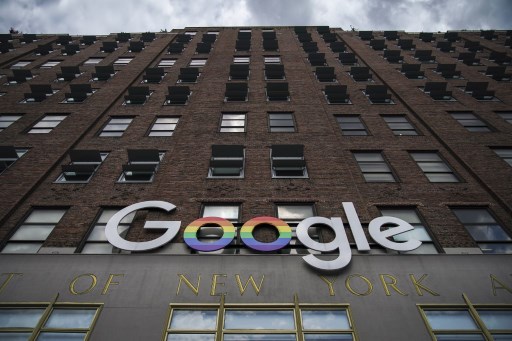
PARIS, France (AFP) — A French consumer rights group said Wednesday that it has launched a class action lawsuit against US tech giant Google for violating the EU’s strict data privacy laws.
The UFC-Que Choisir group said in a statement that the goal of its class action is to “end the insidious exploitation of users’ personal data, particularly those using Android devices with a Google account, and compensate them for up to 1,000 euros ($1,135)”.
“This compensation claim is a first in France as well as Europe,” UFC-Que Choisir president Alain Bazot told AFP.
“If the judge rules in favour, there are potentially 28 million Android users in France that could be entitled to compensation,” he added.
So far 200 people have joined the class action, said Bazot.
Google said it had not yet received details concerning the case and declined to comment for time being.
The class action comes after the internet behemoth suffered two recent blows in France.
In January, France’s CNIL data watchdog slapped Google with a record 50-million-euro fine for failing to meet the EU’s tough General Data Protection Regulation (GDPR), which came into force in May last year.
Then in February, the Paris district level court ordered Google to remove “abusive” clauses from the service conditions it requires consumers to accept.
– ‘Invasion of privacy’ –
UFC-Que Choisir on Wednesday accused Google of “drowning consumers in endless confidentiality rules” and “maintaining a veritable obstacle course” when it comes to users’ geolocation.
“It’s a real invasion of privacy,” said Bazot, adding that “even when you do not use Google’s services, your phone geolocates you 340 times a day!”
The consumer group said it had tried to reach an amicable agreement but had been unsuccessful, so launched the class action suit in Paris against Google Ireland, the internet giant’s European hub, and Google LLC.
Bazot did not expect a quick outcome, saying the procedure could take seven to eight years, or more.
Another non-governmental organisation that defends the rights of internet users has also signalled it plans to file a lawsuit against Facebook.
The choice of going through the courts, as opposed to making a complaint to the CNIL watchdog, means that the case remains in France.
CNIL refers certain cases to the regulator in the EU country where the company is registered in the bloc.
Bazot said pursuing class action lawsuits also means potentially larger fines that would be dissuasive for massive internet firms, calling the 50-million-euro CNIL fine no more than a “mosquito bite” for Google.
Google’s parent company Alphabet earned a first-quarter net profit of $6.7 billion (5.9 billion euro) on revenue of $36.3 billion.
© Agence France-Presse







